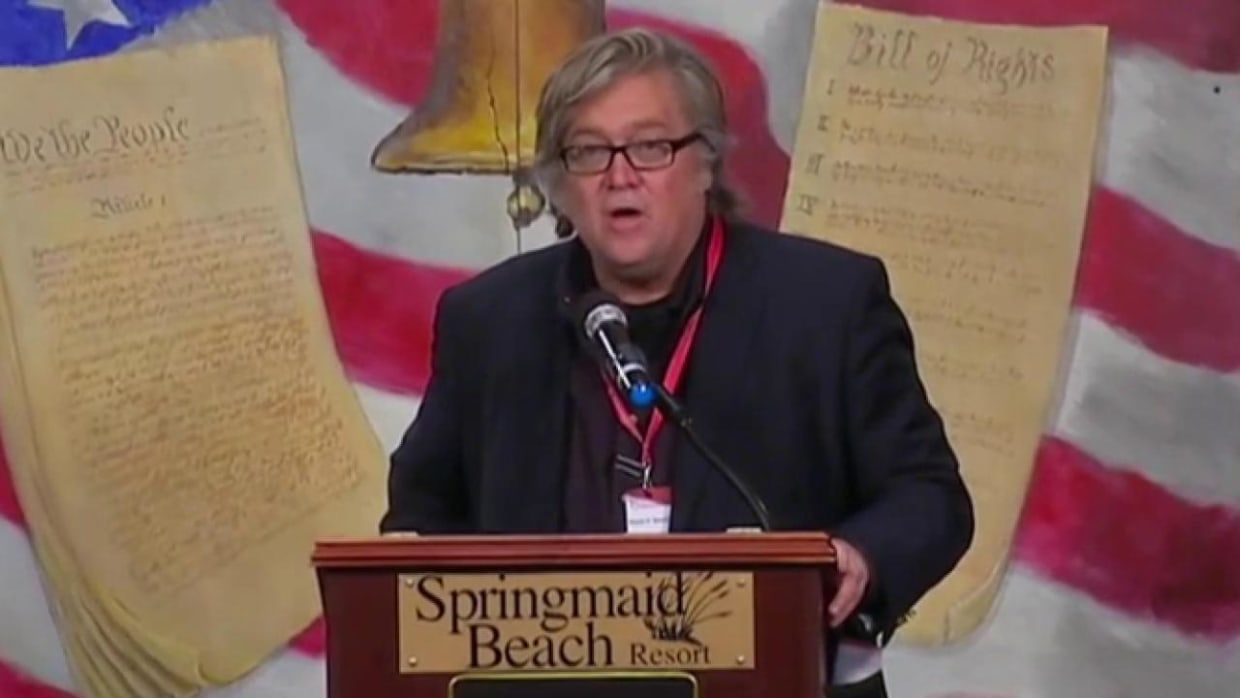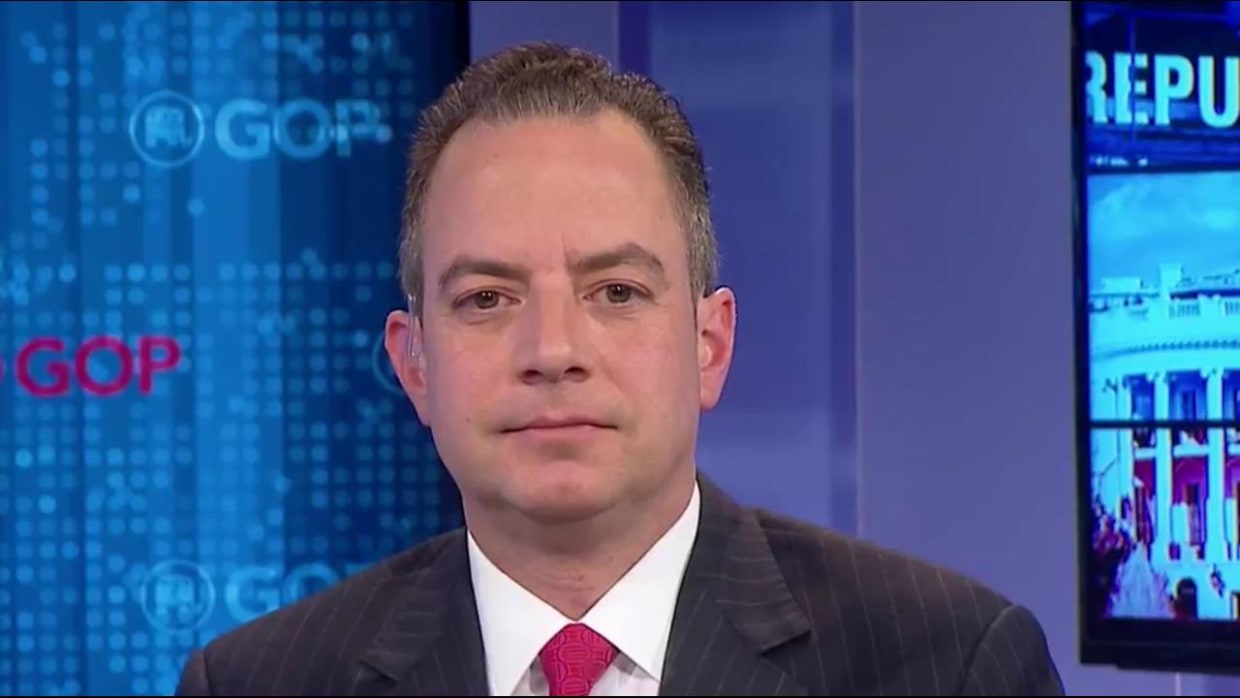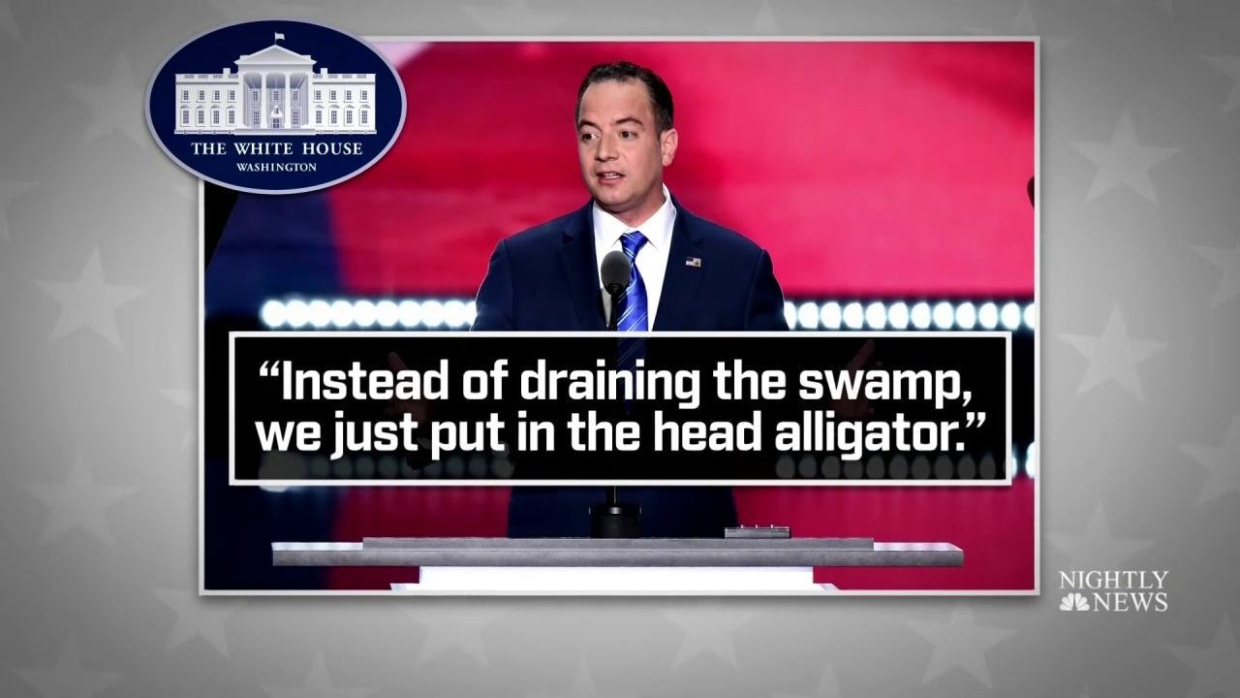For the last six months, Republican leaders walked a careful line supporting Donald Trump. They supported his campaign and loved his running mate, Mike Pence, but they didn't agree with his positions on banning Muslims or mass deportations, or with the far-right figures who backed them.
That line was easy enough to maintain when it was just campaign rhetoric. But now Trump is signaling that the far right wing of the party will be going with him to the White House, where it will have a chance to influence policy, as well.
Steve Bannon, former president of the incendiary Breitbart News and more recently chief executive of Trump's campaign, is taking on a role as "chief strategist and senior counselor." Bannon's ascension is the clearest sign yet that Trump will maintain his ties to the populist white nationalism that helped propel him to the White House against overwhelming opposition from party leaders and traditional media.
"The racist, fascist extreme right is represented footsteps from the Oval Office," John Weaver, who advised Ohio Gov. John Kasich's 2016 presidential campaign, tweeted in response to the news. "Be very vigilant America."
The move was announced by Trump's transition team in tandem with Republican National Committee Chairman Reince Priebus' appointment as White House chief of staff, a role Bannon had been linked to, as well.
Priebus is well-liked by the GOP establishment, and a major question moving forward will be how the Breitbart wing gets along with more traditional Republican leaders uncomfortable with its emphasis on race-baiting headlines and conspiracy theories. A number of statements by Republican politicians praising Trump's decision to draft Priebus into the White House conspicuously failed to mention Bannon.
Under Bannon's guidance, Breitbart served as a hub for pro-Trump, anti-immigration and especially anti-Muslim agit-prop. The site faced regular criticism — including from Democratic nominee Hillary Clinton — for its close ties to the "alt right," an online-based counterculture movement associated with white nationalism. Bannon once called his outlet "the platform of the alt-right."
Breitbart regularly features material from far-right figures around the world, like Geert Wilders, the Dutch politician who has proposed banning the Koran and penned an op-ed for the site recently titled "Let's lock the door on Islam."
While Trump toured the country describing inner cities as "hell" and "war zones," Breitbart maintained a dedicated tag for articles on "black crime." When a white supremacist killed nine African-Americans at a historic black church in Charleston, South Carolina, last year, the site published an article titled: "Hoist it high and proud: The Confederate flag proclaims a glorious heritage."
With the motto "#WAR," Breitbart under Bannon was also known for its feuds against so-called "globalist" Republicans who favor free trade and a relaxed immigration policy.
One of its top targets this year was House Speaker Paul Ryan, R-Wisconsin, and the site championed an ill-fated primary challenge against him this year by Paul Nehlen, who said during his campaign that he would consider deporting all Muslims.
Trump flirted with supporting Nehlen, tweeting praise for him and threatening to withhold his endorsement from Ryan, before ultimately backing the speaker's campaign. Their relationship, and Bannon's role in negotiating it, will go a long way toward determining Trump's success pursuing his legislative agenda.
Sometimes, these feuds turned inward. Several staff members left earlier this year after a Breitbart writer, Michelle Fields, was grabbed by Corey Lewandowski, who was then Trump's campaign manager, as she tried to ask Trump a question. The site published a piece accusing Fields of having wrongly identified Lewandowski as the culprit, but video emerged supporting her account. (Lewandowski was charged with simple battery, but prosecutors later decided not to take a case forward.)
Bannon, himself, was charged with misdemeanor domestic violence in 1996 after his ex-wife claimed that he had attacked her. The charges were dismissed after prosecutors said they couldn't locate his ex-wife. Bannon's ex-wife also claimed in a 2007 divorce filing that he made anti-Semitic comments and didn't want to send their children to a school with Jews, an allegation that Bannon denied.
Charges of anti-Semitism creeped into both Breitbart and the campaign under Bannon's watch at certain points. The Anti-Defamation League expressed alarm in the closing weeks of Trump's campaign at speeches and ads warning of a global conspiracy among bankers, media and government officials that resembled tropes used historically to target Jews.
It also released a statement saying it was "disappointed" in Breitbart after the sitepublished a story by a Jewish author calling Bill Kristol, a conservative critic of Trump, a "renegade Jew."
Ben Shapiro, a writer who left the site over the Fields incident, later complained that the site had come to embody an "alt right" movement that was "shot through with racism and anti-Semitism."
Breitbart writer Milo Yiannopoulos wrote in March that the alt right used anti-Semitic imagery, but only to "shock older generations," which was little comfort to Jewish writers bombarded with Holocaust-themed abuse by purported Trump supporters throughout the campaign.
People like Bannon were once described as the "fringe" by critics; now they're poised to influence the most powerful man in the world, leaving Republicans with a decision to make: How willing are they to accept it?




No comments:
Post a Comment